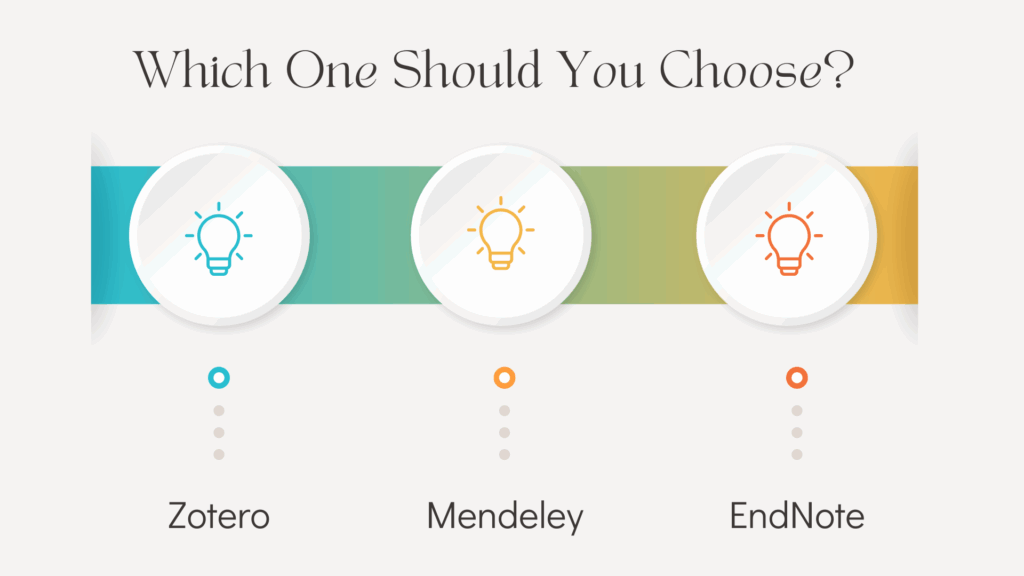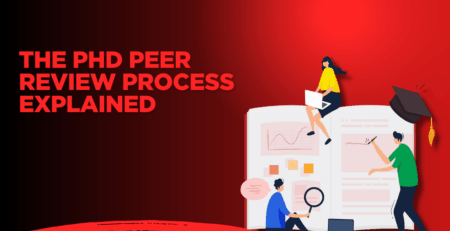Zotero vs Mendeley vs EndNote: Which is Best?
Kenfra Research - Bavithra2025-09-15T16:56:19+05:30Managing references efficiently is one of the biggest challenges faced by students, researchers, and professionals. Whether you are writing a thesis, a research article, or even a simple essay, proper citation and reference management are crucial. That’s where reference management software tools like Zotero vs Mendeley vs EndNote come into play.
But with so many options available, the question remains: Which is the best reference manager – Zotero vs Mendeley vs EndNote? In this blog, we’ll explore the features, pros, cons, and suitability of each tool to help you make the right choice.
Why Reference Management Tools Matter?
Before diving into the comparison, let’s understand why these tools are essential:
- Time-saving – automate the process of generating citations and bibliographies.
- Accuracy – reduce the risk of formatting errors in references.
- Organization – store, organize, and allow quick access to thousands of references.
- Collaboration – make it easy to share references with peers and research groups.
- Integration – integrate with word processors like MS Word, Google Docs, and LaTeX for seamless citation management.
Now, let’s look at each tool individually.

Zotero
Zotero is a free, open-source reference management software developed by the Corporation for Digital Scholarship. It is recognized for its ease of use and adaptability.
Key Features of Zotero
- Free to use with 300 MB of free storage. Paid plans available for more space.
- Supports over 10,000 citation styles (APA, MLA, Chicago, IEEE, etc.).
- Browser connector for quick one-click reference saving from websites, databases, and Google Scholar.
- Strong integration with MS Word, Google Docs, and LibreOffice.
- Tagging and note-taking features for better reference organization.
- Group libraries for collaboration.
Pros
- 100% free and open-source.
- Easy to use for beginners.
- Excellent for humanities and social sciences due to strong support for web-based sources.
- Frequent updates and community-driven improvements.
Cons
- Limited free cloud storage (only 300 MB).
- Some advanced features require third-party plugins.
- Not as feature-rich as EndNote for complex projects.
Best For
Students, early-career researchers, and anyone looking for a free and simple reference manager.
Mendeley
Mendeley, owned by Elsevier, is one of the most widely used reference managers. Apart from citation management, it also serves as an academic social network.
Features of Mendeley
- Free with 2 GB of cloud storage. Paid plans available.
- Import references directly from academic databases and publishers.
- Integrated PDF reader and annotator (highlight and add notes within PDFs).
- Collaboration tools with shared libraries.
- Suggests related research papers through its AI-driven recommendation system.
- Integration with MS Word, LibreOffice, and LaTeX.
Advantages
- Larger free cloud storage compared to Zotero.
- Excellent for STEM researchers due to direct integration with publishers like Elsevier.
- PDF annotation and organization features are user-friendly.
- Doubles as a professional networking tool.
Disadvantages
- Owned by Elsevier, which raises privacy and data-sharing concerns among some academics.
- Limited citation style customization compared to Zotero.
- Some advanced features available only with premium plans.
Uses
Researchers in STEM fields who need PDF management, collaboration, and networking alongside reference management.
EndNote
EndNote, developed by Clarivate Analytics, is a premium reference management software often preferred by professional researchers and academics in established institutions.
Key Features of EndNote
- Extensive database with millions of references.
- Cloud storage (unlimited with institutional access, limited with individual license).
- Advanced search and filter options for large libraries.
- Highly customizable citation styles and bibliographies.
- Integration with MS Word, Google Docs (via plugins), and LaTeX.
- Advanced team collaboration with library sharing.
Pros
- Best-in-class features for professional researchers.
- Handles very large libraries with ease.
- Custom citation style editor.
- Strong technical support from Clarivate.
Cons
- Expensive – requires a one-time purchase or institutional access.
- Steeper learning curve for beginners.
- Limited free storage compared to Zotero or Mendeley.
Best For
Professional researchers, PhD scholars, and institutions that require advanced reference management and unlimited access.
Zotero vs Mendeley vs EndNote: Feature Comparison

Final Thoughts
There’s no single “best” reference manager—it all depends on your research journey. Beginners, Zotero is often the go-to tool because of its simplicity and zero cost. Researchers who want advanced PDF management and collaboration, Mendeley shines. Professionals and institutions that demand scalability and customization, EndNote is the gold standard.
Whichever you choose, remember that the goal of comparing Zotero vs Mendeley vs EndNote is not just to pick a tool, but to make your research writing process smoother, faster, and error-free. Ultimately, Zotero vs Mendeley vs EndNote reflects different strengths, and the right choice depends on your unique needs.
Zotero, Mendeley, or EndNote—which is best? While tools help manage citations, Kenfra ensures your entire PhD journey is stress-free with expert thesis writing, editing, plagiarism check, and publication support. Choose research excellence with Kenfra today!









Leave a Reply